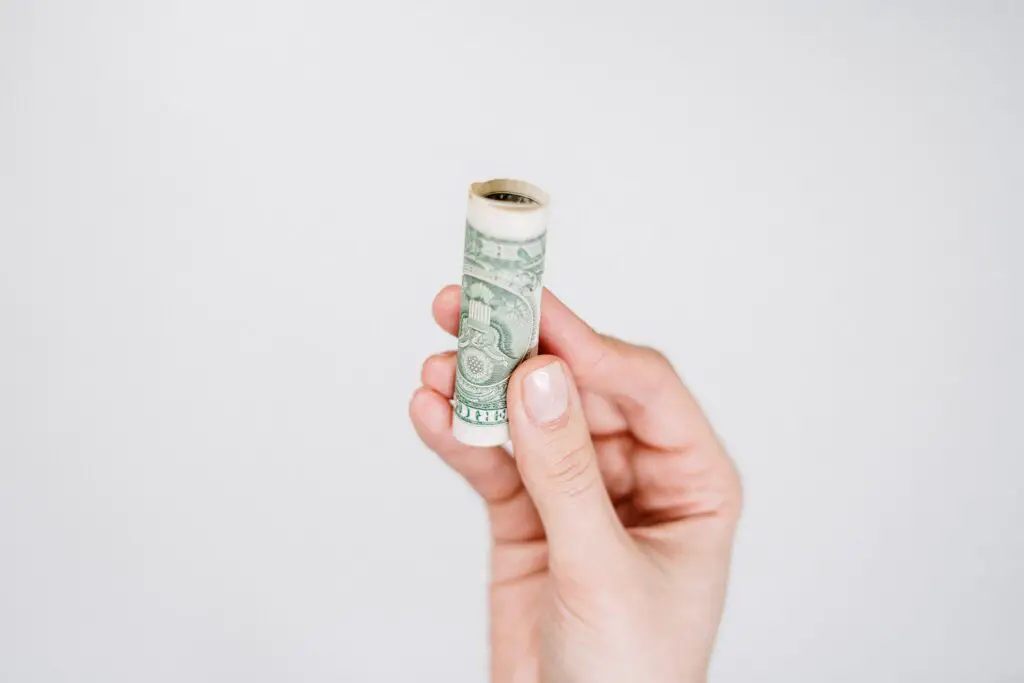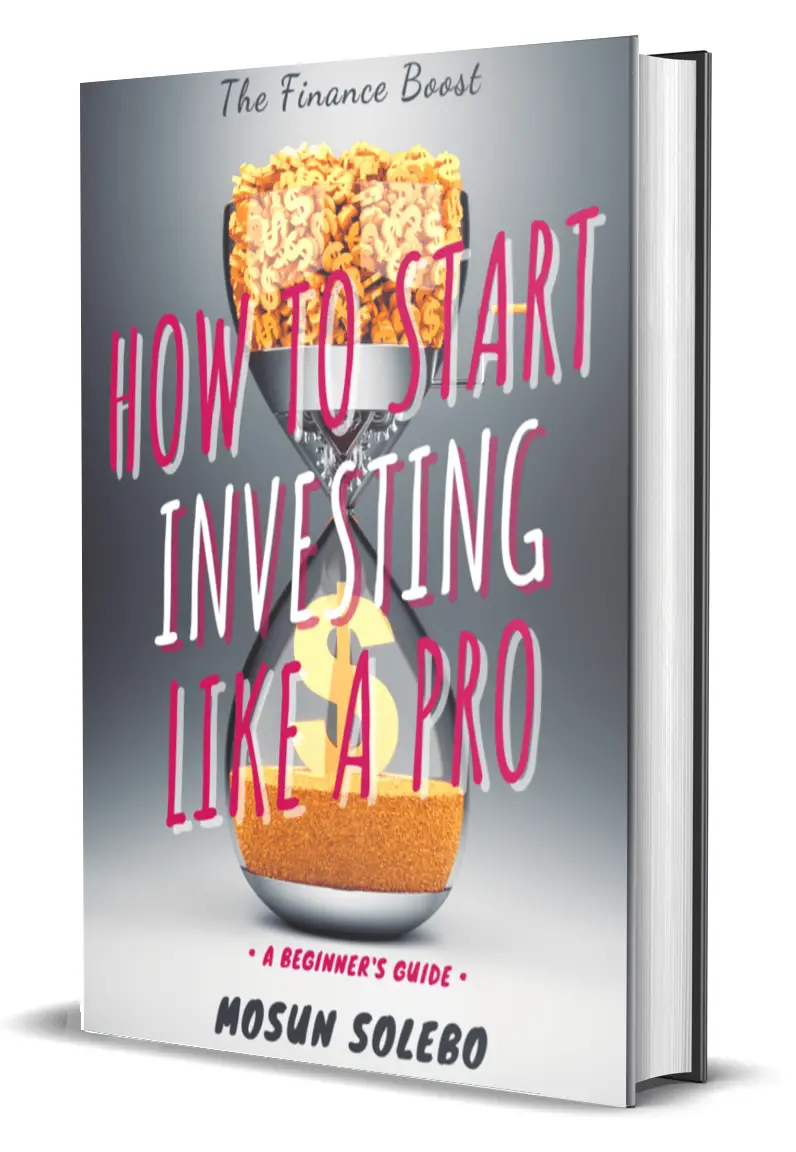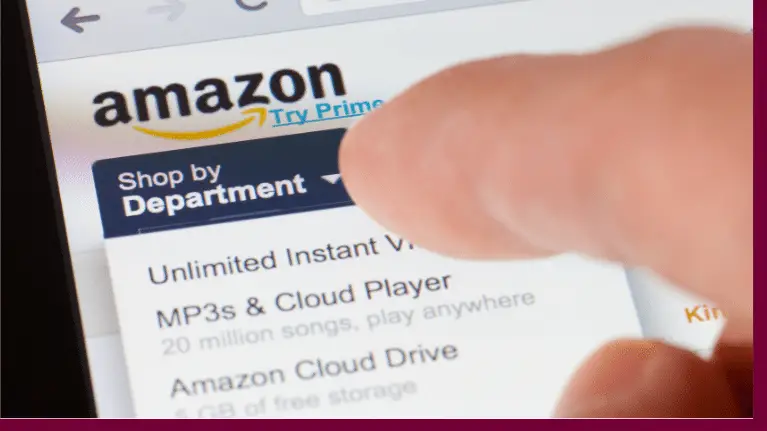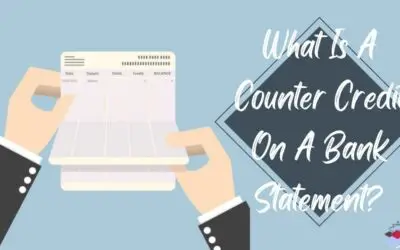11 minutes
Not many of us get regular paychecks from a fixed income. Be it fortnightly or every month.
Some of us live by commission. At the same time, others have to live on a seasonal income like contractors and freelancers.
Several are hustlers or own a small business, and I see no problem with that.
However, it may look challenging to manage money on an irregular income if you are one of these.
It's because you may not know how much you'll earn, when you'll get paid, and how much you'll make next month.
If you're looking for ways to budget for irregular income, you're in the right place.
This article will help you set-up a realistic budget for your irregular pay and share saving strategies you can use.
Related reads: How To Budget and Save Money To Transform Your Finances
What is irregular income?

Whatever you want to call it – Fluctuating income, Variable income, or Seasonal Pay – it all falls under the definition of IRREGULAR INCOME.
Typically, it means any pay or salary you receive that isn't fixed. Often, there's no exact cut-off date of when you will receive it. As long as you're getting paid either based on performance or execution of work depending on your contract.
Irregular income is not just for freelancers or independent contractors alone. You can have an irregular income, say, for example, if you have a part-time gig that pays you on a commission-basis.
Moreover, you may also have a side-hustle that pays you per project completed while having your full-time job as well.
No matter what, you get the idea. Right?
How do I set-up a self-employed budget?

Now, don't freak out. It may look a bit challenging to manage an unpredictable income much as a regular or fixed one. But, there's a surefire way of handling it well.
For starters, you should have at least the basic concept of personal finance, especially if you're new to budgeting or you don't know-how. Don't worry; we have a guide for you there too!
Further reading: Who Needs Financial Literacy? Ultimate Guide To Personal Finance 2021
But in the meantime, let's talk about managing your budget on irregular pay. What and how should you do about it?
Here's how:
- Create a Baseline.
- Identify your non-negotiables (essentials).
- Take note of your discretionary expenses.
- Categorized miscellaneous expenses.
- Use a Budget Planner Tool.
- Allocate funds to your emergency savings.
- Stop impulse buying.
- Get rid of past subscriptions and memberships no longer working for you.
- Trim expenses.
Create a Baseline.
With irregular income, there may be months where you're earning less, or you're making more. Hence, in establishing your baseline, you must average your lowest earning months. It will become your reference or point of comparison to start budgeting for the current or next month.
You can do this by adding your most amount of money with the least amount you make. Get the average, and that will be your baseline.
Identify your non-negotiable (essentials).
These are all your basic needs and essentials that are, of course, non-negotiable. The list can include:
- Foods/groceries
- Housing/rent/mortgage
- Utility bills
- Transportation (if you're commuting from work)
- Childcare
- Clothing
- Savings
- Investments
- Debt repayments
Yes, you should include savings, investments, and any debt repayments you have. Once you identify these, create a specific budget around them. For example, your allotment for this month on groceries is around $200-$400. Try to work around it and find ways not to overspend.
Discretionary Expenses.
These are your least important expenses or non-essential spending. You should identify them too and allocate some budgeted amounts for them. Be sure to reduce the amount on things like entertainment, expensive meals in restaurants, luxury vacations, and recreations, to name a few.
Miscellaneous Expenses.
Bank fees, late fees, and even overdraft fees are a few samples of miscellaneous expenses. You can also categorize them and learn how to eradicate them. For instance, try to be a conscious spender and don't spend more than you have. Learn how to live below your means.
Related reads: How To Live Below Your Means: Frugal Living Tips To Save More Money
Use a Budget Tool.
Now that you know how it's even more crucial to have a budget for a fluctuating income, you may need some help from free and great budgeting tools out there.
With that, you can see your earnings and spending in real-time and plan better.
You get a mental picture of what to anticipate in plain sight since you know how much money you have on-hand or how much to project.
There's no right or wrong way to budget, and using application tools or software, and even the old-fashioned pen and paper, can be of great help.
So long as you're comfortable and know what you're dealing with to track your finances, you're good to go.
Remember,
“The person who doesn't know where his next dollar is coming from usually doesn't know where his last dollar went.”
Build your emergency fund.
Having an emergency fund will be your secret weapon towards living off on an irregular income. How much you tuck away solely depends on you.
The goal is to build up your savings slowly but surely and set aside some bucks to survive during tough months.
For starters, you can begin by saving money for three or six months of your necessary expenses, or a $1,000 fund to set up a good foundation. You probably won’t be able to put money in your buffer fund every single month, but that’s normal. Just keep setting aside money and slowly build your fund.
To do so, you can automate your savings, save your windfalls or additional earnings, save money from your tax refund, and sell worthy assets in your house.
One last thing. Take note that Emergency Fund is different from having your Cash Cushion. An emergency fund is a larger amount, while a cash cushion is lesser, typically lower than $1000.
A cash cushion is a balance of money you keep in your checking account to protect yourself against insufficient-fund penalties and overdraft fees.
Think of it this way. An emergency fund is for the longer-term, enough to sustain you of a sudden job loss, sudden sickness, or during a recession.
On the other hand, a cash cushion covers more in the shorter term. Your cash cushion can cover bank fees, sudden repairs, and small daily expenses.
Learn More:
Questions About Saving Money? Here are all the Answers You Need
Drop the impulse buying.
The first step to building a safety net for your fluctuating income is to stop impulsive buying. This can create a conflict within you if you don't know your actual needs vs. wants.
That's why you must know how to categorize them, and you have a crystal clear budget to do so.
When the item is not on your budget list, drop it. We always advise you to think it out and be intentional about your purchases.
Spare a few days or weeks (or even months) to think about it well enough and do some research on the best deals. Then, whenever you feel like buying it, go to the store and purchase it.
Make sure you buy it when you're calm, and you feel the urge to have it. Not when you're just hyped up or pressured.
Learn More:
The 30-Day Savings Rule – Easy Step by Step Guide to Save More Money
Check out your commitments.
Now that you have identified your baseline and categorized your expenses, it's now time to check out your commitments.
Go over your subscriptions and memberships and re-evaluate those that are no longer serving you. That gym membership will not benefit you if you go over there less than 3 times a week. Mobile apps with monthly fees will also most likely ding your budget.
Nowadays, you can save money by sharing subscription fees on Netflix or Spotify accounts with your loved ones or friends.
Moreover, you can use a subscription cancellation app or tool to help you find recurring subscriptions that are no longer serving you. (It's a bit ironic since some of these apps also need a subscription for you to use them. As long as you're okay with the fees and premium payments, then go. But if not, you can always do the hard work yourself.)
Always check in with your commitments and make sure you're benefiting from them.
Trim your expenses
Apart from subscription cancellation, which is also part of trimming the fat, check other areas in your budget where you can save even a bit of cash.
Cooking your meals at home, doing your own haircut, DIYing things, and shopping in thrift stores are among the few ways you can save some cash and learn how to budget on an irregular or fluctuating income.
Further reading: 32 Realistic Ways to Save Money Very Easily Without Giving up Too Much
What is a good saving strategy to use if your income is uneven?

If you’ve only earned your baseline income this month, and it doesn’t cover all of your essential expenses, don’t panic. Here is a good saving strategy you can try to smooth out the uncomfortable high-low dips of irregular income planning.
- Zero-Sum Budget
- Envelope System
- 50/20/30 Rule
Zero-Sum Budget
It is a savings strategy that gives every dollar a job. You should be able to track every single penny and treat your savings and investment as an expense. In other words, you pay yourself first.
You must know exactly how much is going towards food, gas, entertainment, and savings. Then, at month-end, you are left with zero money. (Provided your expenses accounted for are justified.)
Zero-sum budgeting overestimates variable expenses, so if you're lucky and there's still money left, put it into your savings account.
For irregular income earners, a zero-sum budget uses last month's income to pay for the current month's bills. To do so, you need to be one month ahead on your finances. Work out on saving your one-month expenses and use it for next month's budget.
In a sense, you're living off last month's pay.
Envelope System
The envelope system is one easy way to keep track of your budget. To put it simply, you put cash in an envelope and withdraw money from it. You write down categories on each envelope and assign a budget for it.
For example, if your budget for groceries is $250, you put that amount in an envelope labeled “Food & Groceries,” then that's where you draw the money from for your grocery expenses.
Using the envelope method makes you fully aware of how much cash is going out. Once the envelope is empty, you've used up all of your budget for that category, and you should not dip into other envelopes. This strategy requires discipline and self-control.
50-30-20 Rule
Ah! The famous rule. In simple words, you use an allocated percentage for your needs (50%), wants (30%), and savings (20%). It is also an ideal budgeting rule for beginners since it's easy to follow.
However, this rule does not apply to all. So feel free to modify your percent allocation depending on your income and expenses.
Learn More:
Budgeting Tips for Young Adults: How to be the Master of your Finances
How do you do the 50-30-20 Rule?
First, you must identify your needs and wants. Don't forget to set aside money for your savings goals. Then budget 50% of your income for your essentials like food, water, mortgage, clothes, or rent.
Next, the 30% should go to your wants; entertainment, books, etc. Then, you vest the remaining 20% on your savings or investments.
As mentioned earlier, this type of percentage rule does not apply to all. You can use the 80/20 rule or 60/40, etc. All of these vary on income and spending or lifestyle.
Final Thoughts
You will get better in time. At the moment, you may feel overwhelmed with keeping track of your personal finances but know that, that is why it is called Personal Finance. It's supposed to be personal, so make it like that.
As you learn to budget, monitor, and save up from your irregular income, soon, you'll be like everyone else with regular pay.
You'll know how to spend money on things you love and enjoy while grounding your intentions. There's not much of a difference, actually. When your income varies, you learn how to anticipate, get disciplined, and better with your money.
On a positive note, isn't it exciting not knowing how much you'll earn for the month? It will give you time to find other profitable side businesses or economy gigs.
It will also help you budget beforehand, making you wiser. Besides, the beauty of life lies with the unknown. Frightening, but there's always a way.
The above tips may or may not work with you but make it personal, and don't let others say otherwise. It's your money, your life.
I hope you learn how to budget on irregular income and pick up a thing or two. Let me know what you think in the comment section down below. Happy Reading!












0 Comments